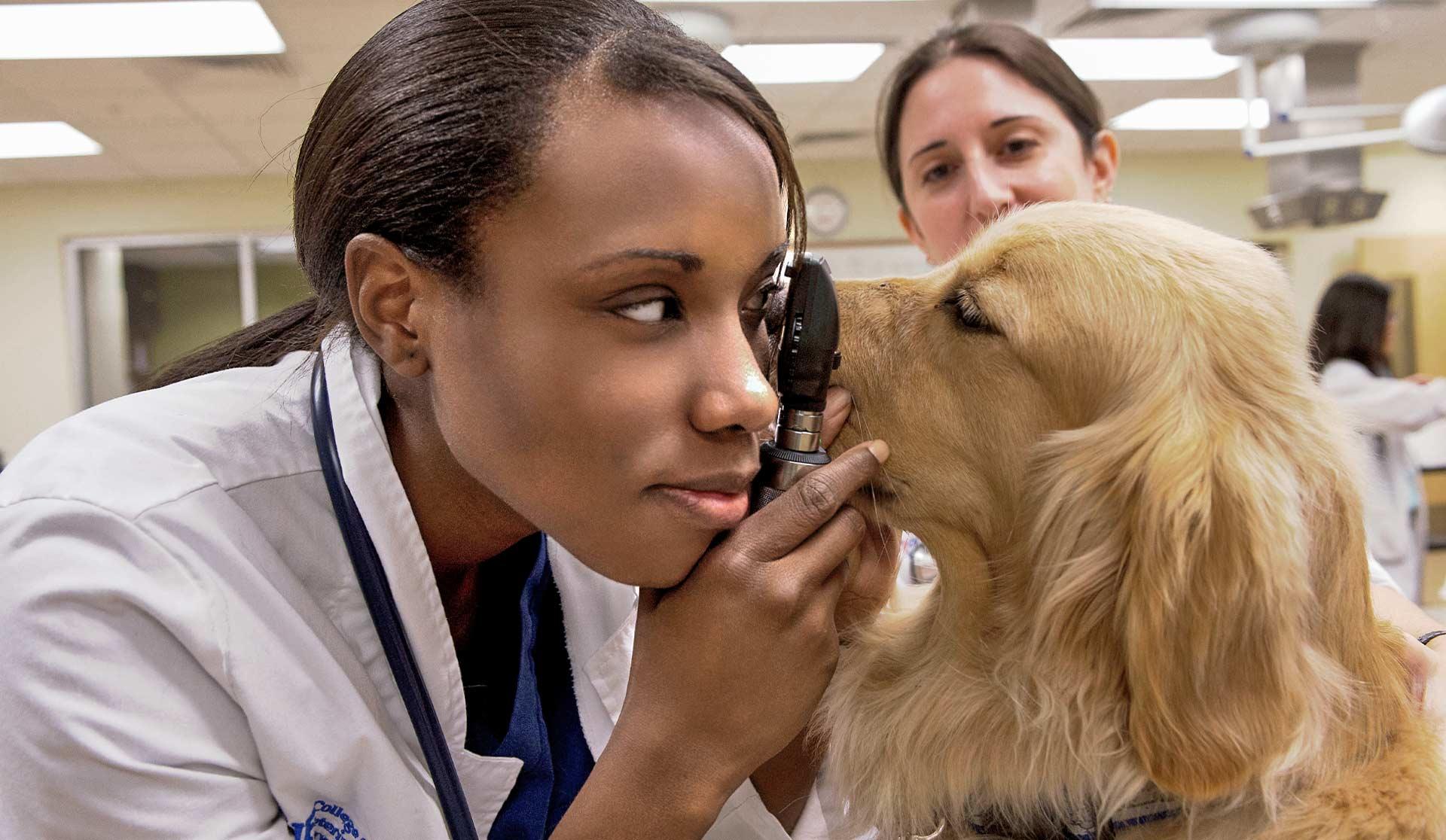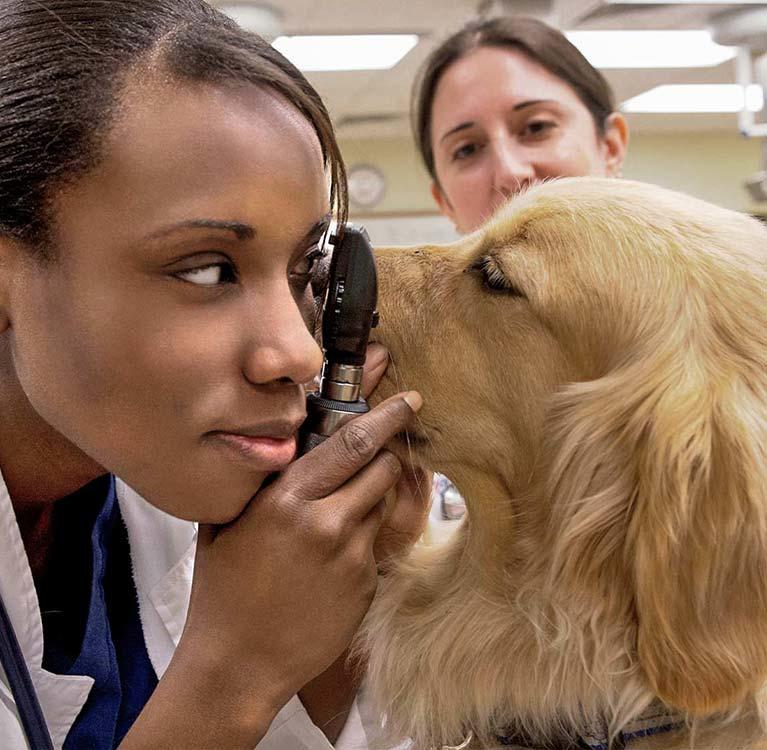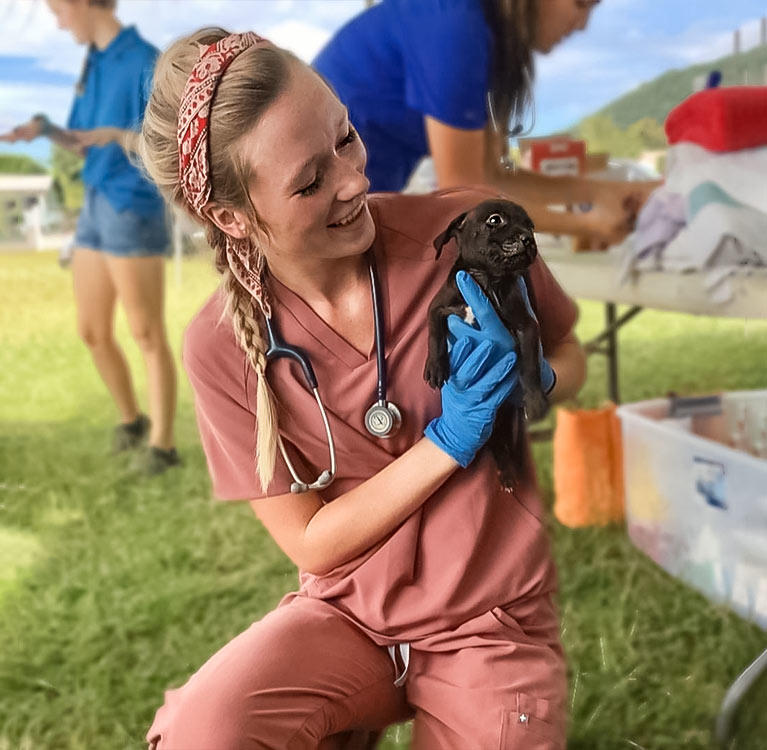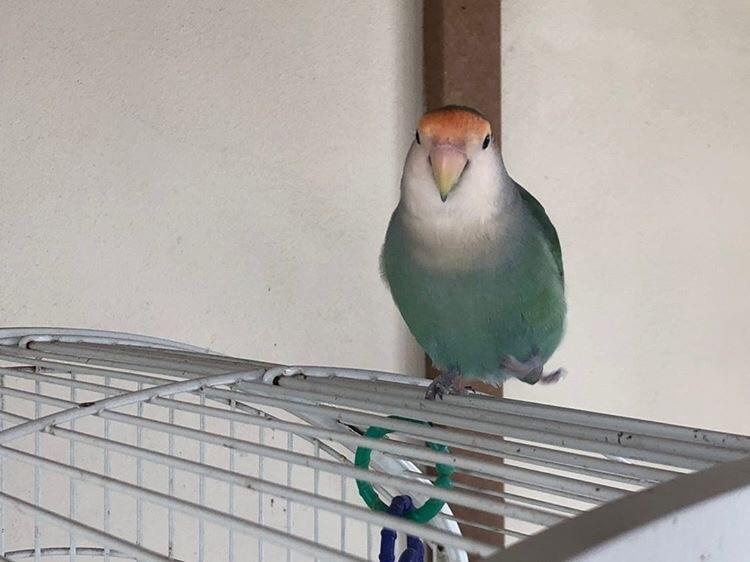Veterinarians care for our pets, but that’s not all they do. They are experts in animal care, as well as educators to their clients and staff. They are also often researchers, business operators, and important members of the community. Veterinary medicine includes a wide range of tasks and responsibilities, and doctors of veterinary medicine (DVMs) have many possible career paths.
If you’ve always had a love of animals and you’re drawn to providing care for them—to help them live their healthiest lives—you may be thinking about applying to veterinary school. But before you do, you may want to know exactly what veterinarians do. Knowing some of the details can help you decide if veterinary medicine is the right career for you. There’s a lot to think about, including the cost and time to complete vet school, but read on to learn a bit more about what vets do.
It is a good time to consider veterinary medicine, as it is a growing field. According to the U.S. Bureau of Labor Statistics (BLS), employment of veterinarians is projected to grow 19% from 2021 through 2031—much faster than the projected growth rate for all occupations.
When people ask, “What do veterinarians do?” their only frame of reference may be whatever they’ve seen or experienced when taking their pet to a local clinic for care. The veterinary profession is much broader than that, with varying career opportunities in a number of settings, from private-practice clinics and public-health research organizations to biopharmaceutical firms and community animal shelters. Furthermore, specializations for veterinarians are wide-ranging. There are currently 46 distinct veterinary specialties recognized by the AVMA.
“A lot of members of the general public view us as just taking care of animals at the basic level, and they don’t realize how sophisticated our medicine is,” says Dr. Ryan Cavanaugh, associate professor of small-animal surgery and assistant dean for clinical placement at Ross University School of Veterinary Medicine (Ross Vet) in St. Kitts. So, what does a veterinarian do? And where might a career in veterinary medicine take you?
What Do Vets Do? (Specific Examples)
Veterinarians are medical professionals who have completed doctoral studies in providing health care for animals. Veterinary medicine encompasses many of the same aspects as human medicine, including health and wellness evaluations and assessments, preventive medicine (including vaccinations), the dispensing of medications, surgical services, rehabilitation, and palliative care.
Veterinarians also provide animal population control services (e.g., spay/neuter surgery for dogs and cats) and may advise public health officials on zoonotic diseases and other animal health issues that can affect humans. Veterinarians’ expertise can help inform public health policy when, for example, an outbreak of disease is detected in a local animal population. Vets can provide a crucial perspective on how easily a disease is transmitted among animals or between animals and humans.
If you grew up on a farm, your answer to “What does a veterinarian do?” may be quite different than if you grew up in an area where household pets are the norm. On a livestock farm or ranch, veterinarians provide evaluation and care for animal populations such as chickens, pigs, or cows that are raised as food sources. For a horse farm, equine veterinarians help manage the health care of horses bred for competition, racing, therapy, or companionship.
Veterinarians may work for large agriculture companies or government agencies (such as the U.S. Department of Agriculture or the U.S. Food and Drug Administration), carrying out such tasks as inspecting food-processing facilities or helping to ensure the safety of food, medications, or even medical devices. And while the majority of vets work directly with animals from day to day, some choose career paths that aren’t focused on clinical care. Opportunities abound in biomedical research and the development of new medicines for animals, as well as in the field of shelter medicine, where administrators and community outreach experts help manage animal shelters for homeless, abused, or neglected animals.
What Does It Take to Be a Vet?
Regardless of the type of animal population you want to work with—common household pets, exotic animals, livestock, or wildlife, for example—to become a veterinarian, you need to complete a Doctor of Veterinary Medicine (DVM) program at an accredited veterinary school such as Ross Vet.
Admission to veterinary school is highly competitive, and the course of study—typically four years—is rigorous. Veterinary schools admit students who have a strong academic background and record of achievement in their undergraduate studies. Vet school applicants also should have significant experience volunteering and/or doing paid work in a veterinary setting and must submit letters of recommendation from animal-care professionals and science professors. Many applicants do not get into veterinary school on their first attempt—there are only around 55 AVMA-accredited veterinary colleges worldwide.
“I was kind of a statistic in that I did not get into vet school on my first application cycle,” says Ross Vet’s Dr. Cavanaugh. In fact, he didn’t start college knowing he wanted to become a veterinarian, but fell in love with the profession after getting a part-time job at a local small-animal clinic. “One of the critiques on my application was that I needed more diversified clinical experience to get in,” he says. “I met with the admission committee, and they gave some recommendations, and they said I should try to get some large-animal experience.” So, Cavanaugh found a volunteer opportunity at a large-animal clinic and worked his way up to becoming a paid veterinary technician who performed general anesthesia on horses. He applied again to veterinary school and was accepted.
“I went into vet school thinking I wanted to be an equine surgeon,” he says. “But then I changed gears again once I got to vet school, and kind of fell back to the companion-animal spectrum and decided I wanted to pursue specialty medicine.” He pursued advanced clinical training in surgical oncology—cancer surgery for animals—and worked in private clinical practice for 10 years before joining the Ross Vet staff in 2017. “I always encourage my students to follow their heart, to continue to keep their eyes and mind open to all of the opportunities that are available to us with this [DVM] degree,” he says.
Trends in the Veterinary Profession
Demand for veterinarians has grown as pet ownership has grown. Nearly two-thirds of U.S. households owned a pet in 2022, according to the American Pet Products Association.
Furthermore, cats and dogs—the most common household pets—are living longer than they used to. In a 2023 study by Frontiers Veterinary Science, the life expectancy for both mixed-breed and purebred cats has increased between 9-14% from 2013-2018, while the life expectancy for all dogs (toy-giant dogs) has increased between 4-7%. Advances in veterinary medicine—especially in animal surgery and cancer treatment—are giving pet and livestock owners expanded options to protect the health of their animals and help them maintain a high quality of life for longer periods of time. Examples of advances in animal medicine include veterinary organ and tissue transplant, gene therapy, and the use of wearable monitors and biosensors.
“One thing that people don’t realize is how technologically advanced we are as veterinarians,” Dr. Cavanaugh says. “Oftentimes, even when I have a physician as a client, taking care of their pet, they will say, ‘I had no idea you guys are able to do this or that.’ At the end of the day, it’s the same medicine. We’re learning the same techniques and the same medical interventions that a human physician would.”
As heightened medical understanding and technological capabilities have allowed for greater specialization in human medicine, the same is now true in veterinary medicine.
“If you have a pet that has a cancer that requires surgery, you’re not just going to take it to a board-certified veterinary surgeon; you’re going to seek out a board-certified veterinary surgical oncologist,” says Dr. Cavanaugh. “I see that as a very exciting advancement in our profession.”
Your interest may be in using advanced technology to help keep animals healthy, or in developing tailored medical treatment plans, or in applying your community-engagement and civic-leadership skills to help protect local animal populations. Whatever veterinary path you choose, a wealth of opportunity-rich careers awaits.
What do veterinary students do?
Learn more about studying veterinary medicine and the many facets of the Ross Vet DVM program, or contact us for more information.








